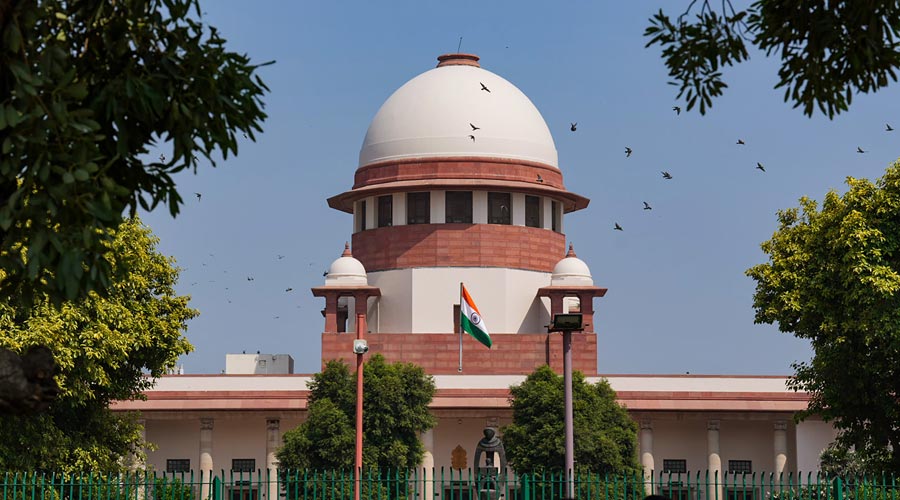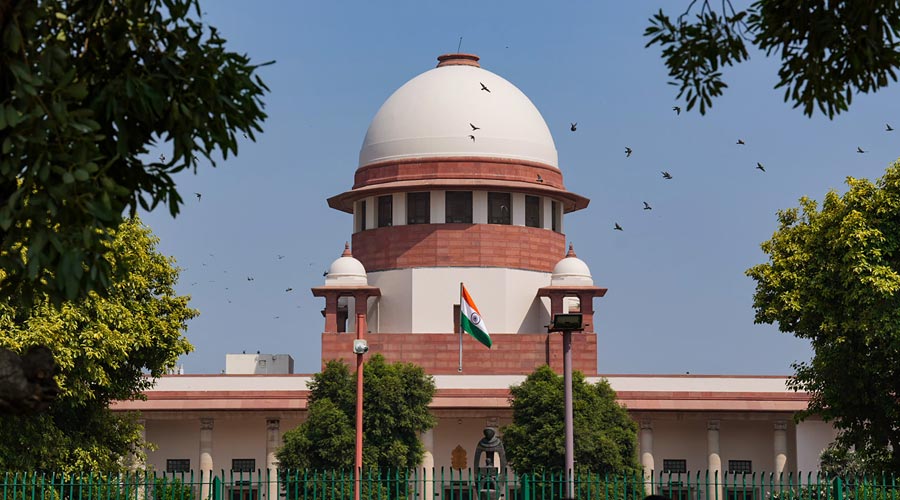The Supreme Court on Wednesday granted interim, eight-week bail to Ashish Misra, son of Union minister Ajay Misra Teni, in the Lakhimpur Kheri case in which four farmers and a journalist were mowed down allegedly by a vehicle carrying the minister’s son and his followers on October 3, 2021.
Exercising its extraordinary constitutional powers, the court also granted bail to four farmers jailed in Uttar Pradesh on a parallel FIR lodged by an aide to the minister who accused them of attacking the convoy. Three others had also been beaten to death at the site where the vehicle ran over the farmers.
The bail order is significant as the farmers had not approached the Supreme Court yet and their bail applications are pending before Allahabad High Court.
In April last year, the apex court had set aside the bail granted to Ashish, saying it was passed in a “tearing hurry” and it was “myopic”. The top court had asked the high court to consider his plea afresh after three months. Subsequently, the high court rejected the fresh bail plea by Misra, aggrieved by which he had filed the present appeal.
A Supreme Court bench of Justices Surya Kant and J.K. Maheshwari had sought a report from the first additional sessions judge at Lakhimpur Kheri, who informed the court that it would take at least five years for the trial to conclude.
Based on the report submitted by the trial judge, the apex court bench issued the following directives:
The petitioner (Ashish) is directed to be released on interim bail initially for a period of eight weeks, subject to bail bonds being furnished to the satisfaction of the trial court.
- With a view to ward off any direct or indirect influence on the material witnesses who are yet to depose, the petitioner is directed to leave Uttar Pradesh within one week from the date of his release on interim bail.
- The petitioner shall not stay in Uttar Pradesh or in the National Capital Region of Delhi during the period of interim bail.
- The petitioner shall disclose the place of his residence to the trial court as well as the jurisdictional police station within one week of his release. He shall mark his presence in the jurisdiction police station once a week.
- The petitioner shall surrender his passport to the trial court within one week of his release on interim bail.
- The petitioner shall not enter Uttar Pradesh except to attend the trial proceedings.
- Any attempt made by the petitioner, his family or supporters to influence or threaten the witnesses, directly or indirectly, shall entail cancellation of the interim bail.
- The prosecution, the special investigation team or any family member of the victims can promptly inform the top court of any incident of misuse of the interim bail.
- The petitioner shall appear before the trial court on every date of hearing and no adjournment shall be sought on his behalf. If the petitioner is found involved in prolonging the trial, it shall be taken as valid ground to cancel the interim bail.
In the same order to ensure parity to the accused, the bench directed the release of the four accused farmers.
“As noticed earlier, there are two separate FIRs with different narratives but the place of occurrence and substratum of the incident are the same. The question as to who were the aggressors or responsible for the unfortunate ghastly incident would be ascertained only after a full-fledged trial. As a necessary corollary, we, in exercise of our suo motu constitutional powers, extend the benefit of interim liberty to the under trial accused,” the Supreme Court bench said.
The four are Guruwinder Singh, Kamaljeet Singh, Gurupreet Singh and Vichitra Singh.
While granting the bail, the bench made the following observations.
“We are conscious of the grave allegations leveled against the petitioner but we must also acknowledge that principles of procedural fairness require these allegations to be proven in trial proceedings. In the present case, charges have been framed, and the petitioner is in custody for more than a year. In view of the large volume of oral and documentary evidence, which the prosecution is entitled to lead in both cases, coupled with the defence evidence, if any, the trial cannot be expected to be concluded that early.
“Similar is the fate of the undertrials in the contrasting version wherein four farmers who are accused of inflicting fatal injuries to three associates of the petitioner are incarcerated. We are further informed by the learned State Counsel that their respective bail applications are pending in the High Court.
“At the same time, we find ourselves in agreement with the apprehensions raised regarding fair trial and the doubts surrounding the impartiality of the conduct of law enforcement agencies. We are, therefore, of the view that it is imperative to balance the rights of the petitioner’s liberty emanating under Article 21vis a vis the State’s right to ensure a fair and proper trial and safeguard the legitimate outcry of the victim (s) of crime.”











